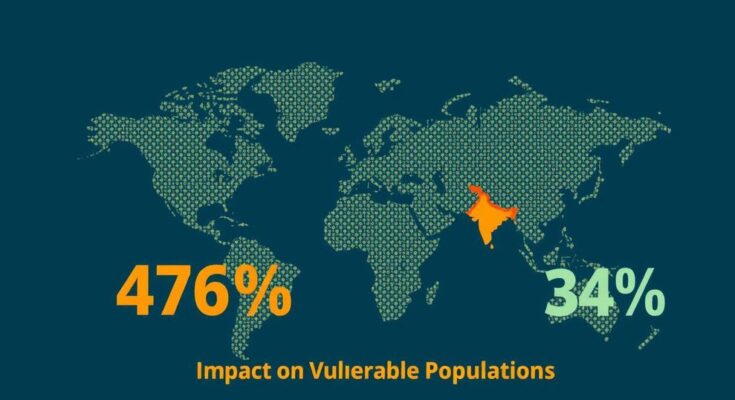At the UNCCD COP16 in Riyadh, Minister Imaan Sulaiman-Ibrahim highlighted that 80% of climate change victims globally are women and children, urging for targeted solutions. She emphasized the role of women in agriculture and the need for their empowerment to combat climate impacts and foster sustainability. The Minister praised Nigeria’s climate initiatives, calling for international support to enable women’s leadership in climate action.
Imaan Sulaiman-Ibrahim, the Minister of Women Affairs in Nigeria, has revealed that a staggering 80 percent of the global victims of climate change are women and children. This statistic emphasizes the urgent need for focused interventions to support these vulnerable populations. Addressing an audience at the United Nations Convention to Combat Desertification (UNCCD) COP16 in Riyadh, she underscored the critical economic and social contributions of women, who engage in 70 percent of food processing and constitute 60 percent of smallholder farmers worldwide. Sulaiman-Ibrahim asserted that empowering these women in land restoration and sustainable agricultural practices is vital to enhancing food security and combating climate-induced risks.
The Minister expressed concern over health risks faced by women due to reliance on traditional cooking methods, noting that those using wood or charcoal for cooking inhale fumes equivalent to 40 cigarette sticks per meal. She highlighted the significant role of Nigerian women, who represent over 50 percent of the population and engage in 70 percent of agricultural activities, positioning them as pivotal stakeholders in the green economy. Their potential to leverage sustainable practices was acknowledged as being crucial for achieving environmental goals.
In detailing the socio-economic ramifications of land degradation, Sulaiman-Ibrahim discussed varying challenges across Nigeria’s geopolitical zones. For instance, the Northeast faces exacerbated conflicts due to climate change, resulting in mass displacements and increased risks of gender-based violence. In the Northwest, desertification threatens agriculture and water supplies, while the South suffers from rising sea levels and flooding, particularly impacting communities in the Niger Delta. The Southeast confronts issues like gully erosion, leading to significant economic ramifications.
The Minister commended the Nigerian government’s climate action strategies, praising President Bola Ahmed Tinubu for implementing the Climate Change Act and the establishment of the National Council on Climate Change (NCCC). The launch of Nigeria’s Nationally Determined Contributions (NDC) Implementation Framework for 2023–2030 further illustrates a commitment to mitigating climate change through innovation.
Sulaiman-Ibrahim also emphasized the significance of the Climate Gender Policy in promoting women’s engagement in climate action. “Empowering women to participate in climate action catalyses innovative solutions and builds community resilience,” she noted. She appealed to international organizations and partners to equip women with necessary resources and platforms for tackling the climate crisis, asserting that their leadership is essential for achieving related Sustainable Development Goals.
The UNCCD COP16 in Riyadh serves as an international platform for addressing pressing environmental challenges, with Nigeria’s involvement reflecting a dedicated stance towards tackling desertification and fostering inclusive climate initiatives.
The intersection of climate change and gender reveals that women and children suffer disproportionately from its effects. Women account for substantial portions of the agricultural sector and often bear the brunt of environmental degradation impacts. Research indicates a link between traditional cooking methods and health risks, illuminating urgent socio-economic and health considerations. Addressing these vulnerabilities is critical in fostering resilience and development. The global emphasis on enhancing women’s roles in combating climate change aligns with sustainable development goals, noting their essential contributions to food security and community resilience.
In conclusion, Imaan Sulaiman-Ibrahim’s remarks at the UNCCD COP16 shed light on the pressing issue of climate change impact on women and children, emphasizing the need for concerted efforts to empower these groups. By recognizing the crucial role women play in agriculture and community development, the Nigerian government aims to foster a resilient future. Collaborative initiatives and policies that prioritize women’s involvement are essential to reversing the adverse effects of climate change and achieving sustainable development outcomes.
Original Source: businessday.ng




